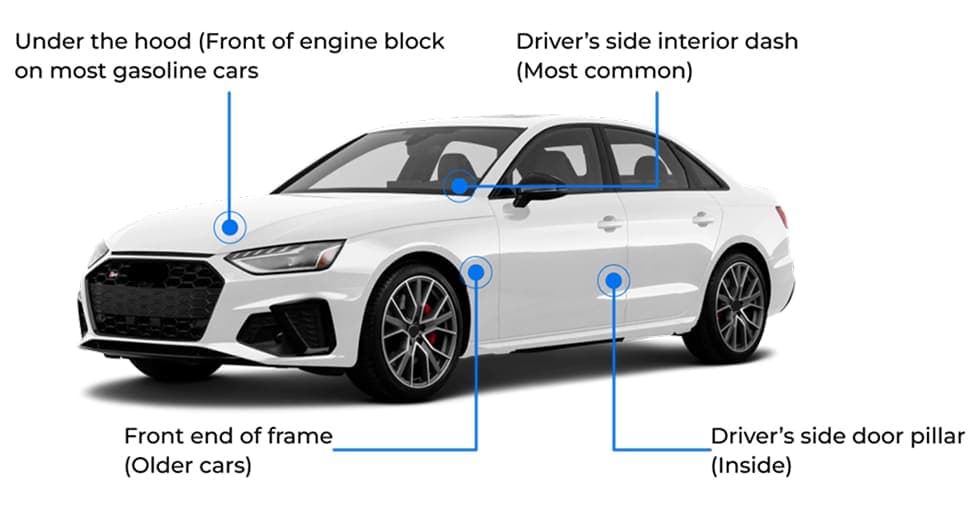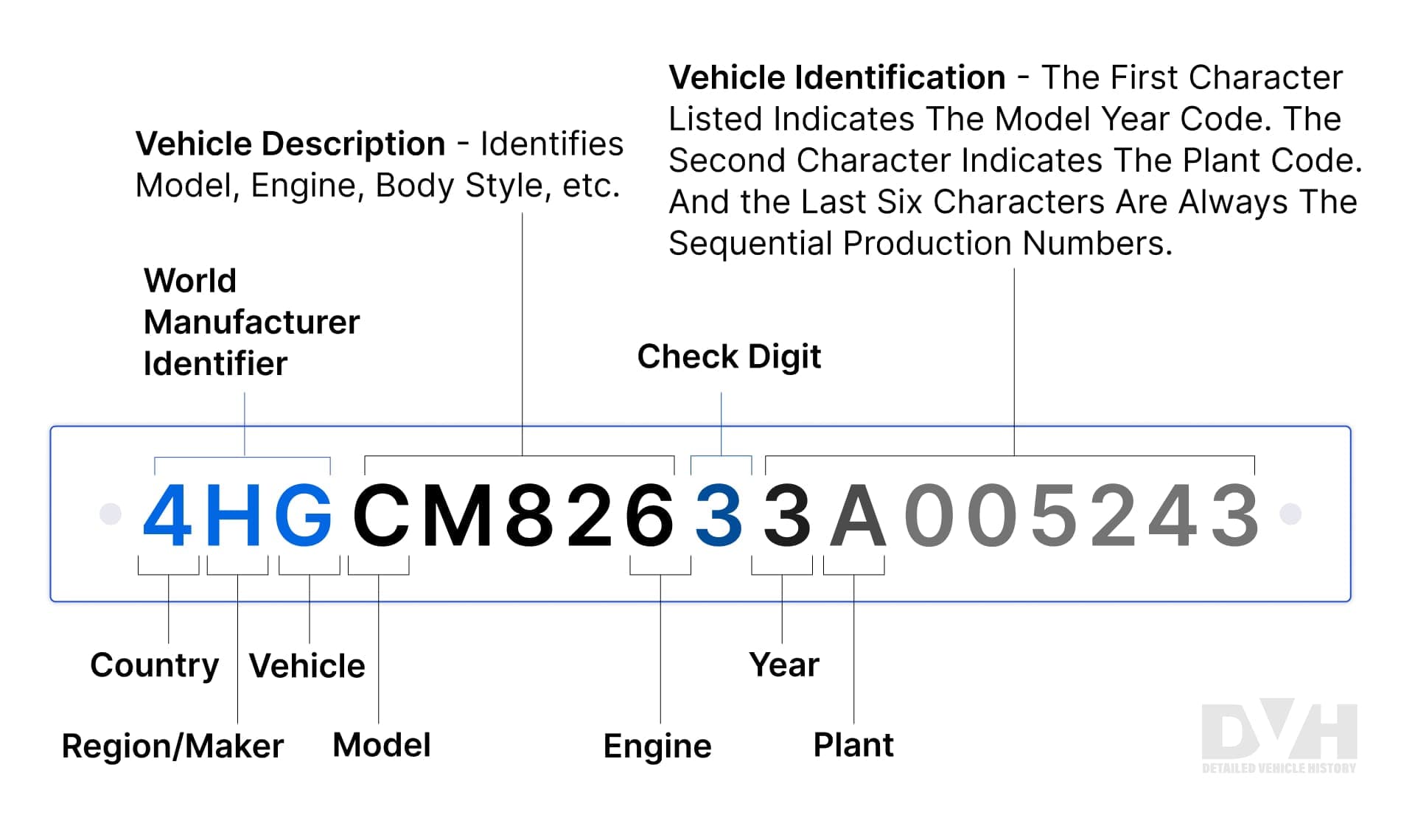How to Read a Lotus VIN Number?
A Lotus 17-digit VIN has three sections that provide specific information about the car. When using our Lotus VIN decoder, it's best to copy or scan the VIN directly, so you can avoid mixing “0” for “O” or “1” for “I”.
The first part of the Lotus VIN is called the WMI (World Manufacturer Identifier), which takes up positions 1 to 3. It tells you who made the car and the country where it was built. This makes it easy to identify the car's origin. Typically, a Lotus VIN number starts with “SCC,” indicating Lotus Cars Limited.
The next part is the VDS (Vehicle Descriptor Section), which covers positions 4 to 9. These numbers and letters describe the car's body style, engine type, safety system, and model. The 9th digit is a special check digit used to validate the accuracy of the Lotus VIN number.
The last section is the VIS (Vehicle Identifier Section), found in positions 10 to 17. This part shows the model year, the plant where the car was assembled, and a unique serial number for the vehicle. It is often used for recalls, warranty claims, imports, and ordering the right parts.


